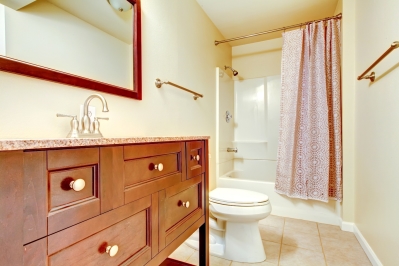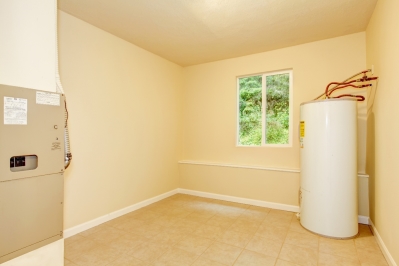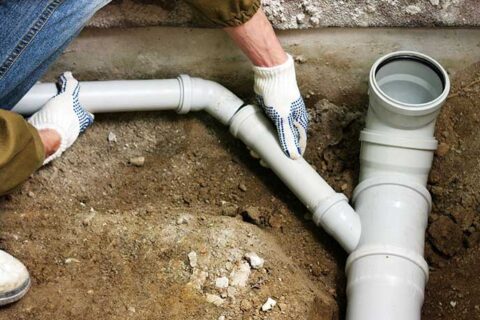What Are the Most Common Water Flow Issues?

Hot water tanks provide our homes with a reliable supply of water, but low water pressure can put a damper on our day. Water pressure in your home should be at least 40 gallons per minute.1 If not, you may get cold water from your faucets—or no water at all.
The problem may not be from the faucet or sink itself. A bad hose connection can cause low hot water pressure. This will typically affect one faucet, so you can check the connection there. If the connection seems okay, and/or other faucets are showing signs of low pressure, the trouble is likely elsewhere.
Common Sources of Low Water Flow
Water heaters : Low pressure when running hot water is evidence of a water heater problem. Sediment that builds up in a hot water tank can block the flow. It accumulates over time, especially if you have hard water with minerals that settle out and harden.
Pipes/Lines : The pipes serving the hot water heater can become blocked by buildup as well. The blockage will gradually reduce pressure over time. Flexible lines, such as accordion-style copper pipes, can develop kinks that reduce flow.
Valves : A Pressure Reducing Valve (PRV) where the water line enters the home may be improperly adjusted. If the PRV is working properly, a screw can be turned clockwise to increase water pressure, but the valve can break or fail, too, requiring replacement. The hot water shut-off valve, located at the water meter, can affect water pressure. Flow may be restricted or cut off if the valve is damaged.
Leaks : A leak in a hot water tank, pipe, or line can cause low water pressure. Leaks at the service line or meter can occur as well. You also want to look for evidence of leaks in the basement. Puddles, water spots, or dampness near hot water tanks, water fixtures, or pipes are clear signs of leakage. Other indicators are dripping noises, or even wet spots outside the house, where the ground hasn’t been exposed to moisture. This raises suspicions of a leak, especially if the weather has been dry.
Low Hot Water Pressure in Your Home

Aside from sink problems, low hot water pressure in shower installations is a sign of a problem. The showerhead is directly connected to the plumbing system, but it can be difficult to determine the source of the issue without the proper tools and experience. So is inspecting the components and pipes associated with your faucets. A leak, blockage, or damage may be challenging to spot, which is why it’s important to seek the help of a professional plumber.
Speedy Plumbing employs a team of experts who can check your hot water heater and other parts of the plumbing system to determine the source of low hot water pressure. Emergency service is always available, and we offer free estimates as well. Prompt, reputable, and affordable, our BBB-accredited company is ready to help— contact us online for a quick response, diagnosis, and resolution.
Source
http://homeguides.sfgate.com/causes-water-heater-lose-pressure-after-water-gets-hot-89225.html

